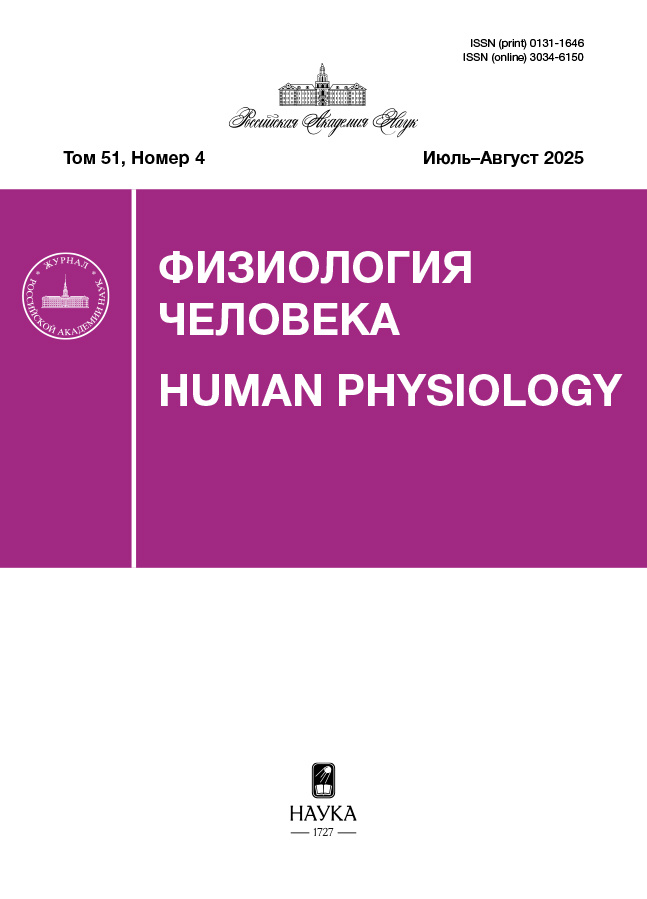The effective of the relaxation scenario in virtual reality technology for young people
- Authors: Galkin S.A.1, Sozonov A.S.1,2, Bykova M.A.1, Roshchina O.V.1, Bokhan N.A.1,2
-
Affiliations:
- Mental Health Research Institute, Tomsk National Research Medical Center, RAS
- Siberian State Medical University
- Issue: Vol 51, No 3 (2025)
- Pages: 40-45
- Section: Articles
- URL: https://kazanmedjournal.ru/0131-1646/article/view/684023
- DOI: https://doi.org/10.31857/S0131164625030043
- EDN: https://elibrary.ru/TRHOFM
- ID: 684023
Cite item
Abstract
In order to study the effect of the relaxation scenario in virtual reality technology on the psychophysiological state, 20 young people without signs of mental and behavioral disorders were examined. Each participant completed a series of 5 trainings using the Kayak VR: Mirage app while wearing Pico 4 PRO virtual reality glasses. At the end of the training, a statistically significant decrease in the level of hopelessness (p = 0.035) and anxiety (p = 0.047) was found. Also, during the training, all participants in the study observed changes in the work of the autonomic nervous system, which were expressed in an increase in the peripheral temperature of the phalanx of the finger, an increase in the amplitude of the photoplethysmogram, as well as a decrease in the reflection index, stiffness index, heart rate, stress index and the adequacy of regulatory processes. Thus, in order to reduce the subclinical level of stress-related anxiety in young people, it can be recommended to conduct a series of relaxation trainings in VR, without resorting to pharmacological methods. The main effect of relaxation in a VR environment is achieved by enhancing the function of the parasympathetic division of the autonomic nervous system.
Keywords
Full Text
About the authors
S. A. Galkin
Mental Health Research Institute, Tomsk National Research Medical Center, RAS
Author for correspondence.
Email: s01091994@yandex.ru
Russian Federation, Tomsk
A. S. Sozonov
Mental Health Research Institute, Tomsk National Research Medical Center, RAS; Siberian State Medical University
Email: s01091994@yandex.ru
Russian Federation, Tomsk; Tomsk
M. A. Bykova
Mental Health Research Institute, Tomsk National Research Medical Center, RAS
Email: s01091994@yandex.ru
Russian Federation, Tomsk
O. V. Roshchina
Mental Health Research Institute, Tomsk National Research Medical Center, RAS
Email: s01091994@yandex.ru
Russian Federation, Tomsk
N. A. Bokhan
Mental Health Research Institute, Tomsk National Research Medical Center, RAS; Siberian State Medical University
Email: s01091994@yandex.ru
Russian Federation, Tomsk; Tomsk
References
- Golovey L.A., Petrash M.D., Strizhitskaya O.Yu. et al. [The role of psychological well-being and life satisfaction in perception of daily stress] // Konsul'tativnaja Psihologija i Psihoterapija. 2018. V. 26. № 4. P. 8.
- Westberg K.H., Nyholm M., Nygren J.M., Svedberg P. Mental health problems among young people-a scoping review of help-seeking // Int. J. Environ. Res. Public Health. 2022. V. 19. № 3. P. 1430.
- Voevodin I.V., Peshkovskaya A.G., Galkin S.A., Belokrylov I.I. [Social adaptation and mental health of foreign students in Siberia] // Sociologicheskie Issledovanija. 2020. № 11. P. 157.
- Pascoe M.C., Thompson D.R., Jenkins Z.M., Ski C.F. Mindfulness mediates the physiological markers of stress: Systematic review and meta-analysis // J. Psychiatr. Res. 2017. V. 95. P. 156.
- Fischer J.M., Kandil F.I., Kessler C.S. et al. Stress reduction by yoga versus mindfulness training in adults suffering from distress: A three-armed randomized controlled trial including qualitative interviews (RELAX Study) // J. Clin. Med. 2022. V. 11. № 19. P. 5680.
- Park M.J., Kim D.J., Lee U. et al. A literature overview of virtual reality (VR) in treatment of psychiatric disorders: Recent advances and limitations // Front. Psychiatry. 2019. V. 10. P. 505.
- Riches S., Kaleva I., Nicholson S.L. et al. Virtual reality relaxation for stress in young adults: A remotely delivered pilot study in participants’ homes // J. Technol. Behav. Sci. 2024. V. 9. P. 771.
- Chan S., Qiu L., Esposito G. et al. Nature in virtual reality improves mood and reduces stress: evidence from young adults and senior citizens // Virtual Real. 2021. V. 26. P. 1.
- McGarry S., Brown A., Gardner M. et al. Immersive virtual reality: An effective strategy for reducing stress in young adults // Br. J. Occup. Ther. 2023. V. 86. № 8. P. 560.
- Hsieh C.H., Yang J.Y., Huang C.W. et al. The effect of water sound level in virtual reality: A study of restorative benefits in young adults through immersive natural environments // J. Environ. Psychol. 2023. V. 88. P. 102012.
- Riches S., Jeyarajaguru P., Taylor L. et al. Virtual reality relaxation for people with mental health conditions: a systematic review // Soc. Psychiatry Psychiatr. Epidemiol. 2023. V. 58. № 7. P. 989.
- Meshkat S., Edalatkhah M., Di Luciano C. et al. Virtual Reality and stress management: A systematic review // Cureus. 2024. V. 16. № 7. P. e64573.
- Noushad S., Ahmed S., Ansari B. et al. Physiological biomarkers of chronic stress: A systematic review // Int. J. Health Sci. (Qassim). 2021. V. 15. № 5. P. 46.
- Ali S.G., Wang X., Li P. et al. A systematic review: Virtual-reality-based techniques for human exercises and health improvement // Front. Public Health. 2023. V. 11. P. 1143947.













